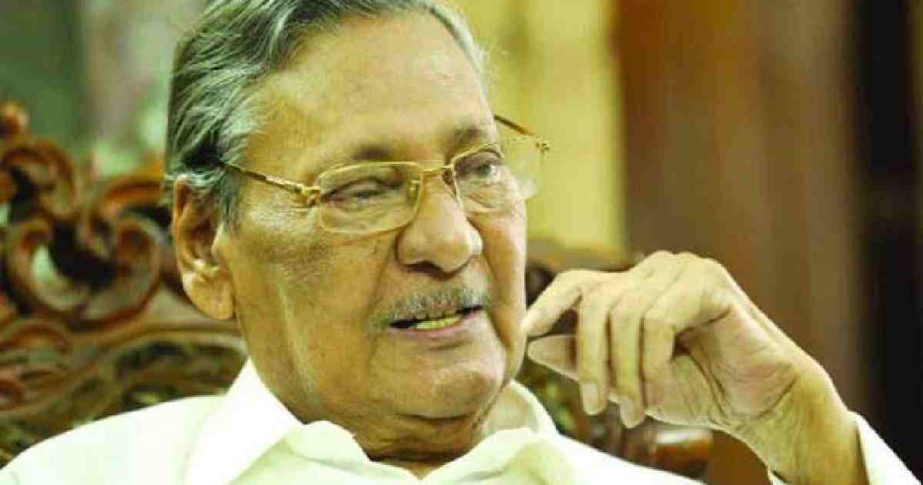
An erudite scholar of international fame Professor Emajuddin Ahmed was an eminent social scientist, educationist, author and litterateur. After completing higher studies and obtaining PhD from the Queens University of Canada, Prof Emajuddin taught political science at the University of Dhaka from 1970 to 1992 where he assumed the responsibility of Vice-Chancellor. He served as VC of the University from 1992-1996. On completion of his tenure as VC he returned to the teaching profession and worked as Chairman of the Political Science Department. After retirement from the University, he served as Vice-Chancellor of the University of Development Alternates from 2001 of 2016.
Professor Emajuddin was the founder President of Shotonagorik Committee (A Hundred Citizens) which was formed in 1996 after BNP lost the election and sat in the Opposition. I took the initiative to form the organisation at the instance of Begum Khaleda Zia, Chairperson of BNP and leader of the Opposition with the active help of Sadeq Khan, Engineer L.K. Siddiqui, Professor Mahbubullah, late Professor Aftab Ahmed and many other noted educationists, journalists, lawyers and others. The organisation held seminar and discussion meetings on various national issues and led many movements to redress public grievances.
On October 07, 2016 Shotonagorik Committee organised a discussion meeting in the capital city under the leadership of Prof Emajuddin Ahmed. In the meeting, senior politicians, educationists and professionals urged the government to refrain from building the coal fired power plant at Rampal near the Sundarbans. The speakers demanded a referendum to review the public opinion about the installation of the power plant as damages to the world’s largest mangrove forest and locality would be disastrous if the project was implemented. The Shotonagorik Committee led a movement to stop the project as it would endanger the biodiversity of the world’s largest mangrove forest. Presiding over the meeting Prof Emajuddin said, “We want the government will give priority to national interest”. Thereupon the movement against the project gained momentum and is still continuing.
A relentless writer in dailies and periodicals, Professor Emajuddin authored more than 50 books. Some of his books are read as text books in schools and colleges in the country.
A man of amiable disposition Prof Emajuddin earned the admiration and respect of his colleagues and friends in every walk of life. He was awarded the prestigious national award Ekushey Padak in 1992.
The last time I met Prof Eamajuddin on 28 February at the Ekushay Book Fair when he launched my book ‘Shadhin Banglar Hajar Bochhorer Itihash’. While returning to his house he asked me to draft an appeal to the Prime Minister for the release of Begum Khaleda Zia. He wanted to read out the appeal before the press. The draft was ready but the Prime Minister Sheikh Hasina released Khaleda Zia by an administrative order which was unexpected and surprising to many. On that very day he asked me to join him as the Co-Chairman of Shotonagorik Committee and make the organisation active. I was the Secretary General of the organisation from 1996 to 2006 and worked from behind as I was then a member of parliament elected from BNP.
The Shotonagorik Committee will carry forward his unfinished move and his legacy will live long. Shotonagorik Committee provided intellectual and professional support to BNP after Awami League and 14 party alliance came to power. Before the election in 2001, Shotonagorik Committee held a Sanghati Sammelon (Unity Conference). Seminars and discussion meetings were held in the Engineers’ Institution for seven days. On the concluding day of the conference under its banner, leaders of Islamic parties including Jamaat-e-Islami joined Begum Khaleda Zia on the dais and delivered their resolve to form the 4 party Alliance led by BNP. In the election the alliance won a thumping victory with 217 seats in the parliament. It was the general impression that Prof Emajuddin would become the country’s president. Instead he was offered the chairman position in Agrani Bank which he regretted.
Let his soul rest in peace.
(Abu Hena is a former parliament member)

